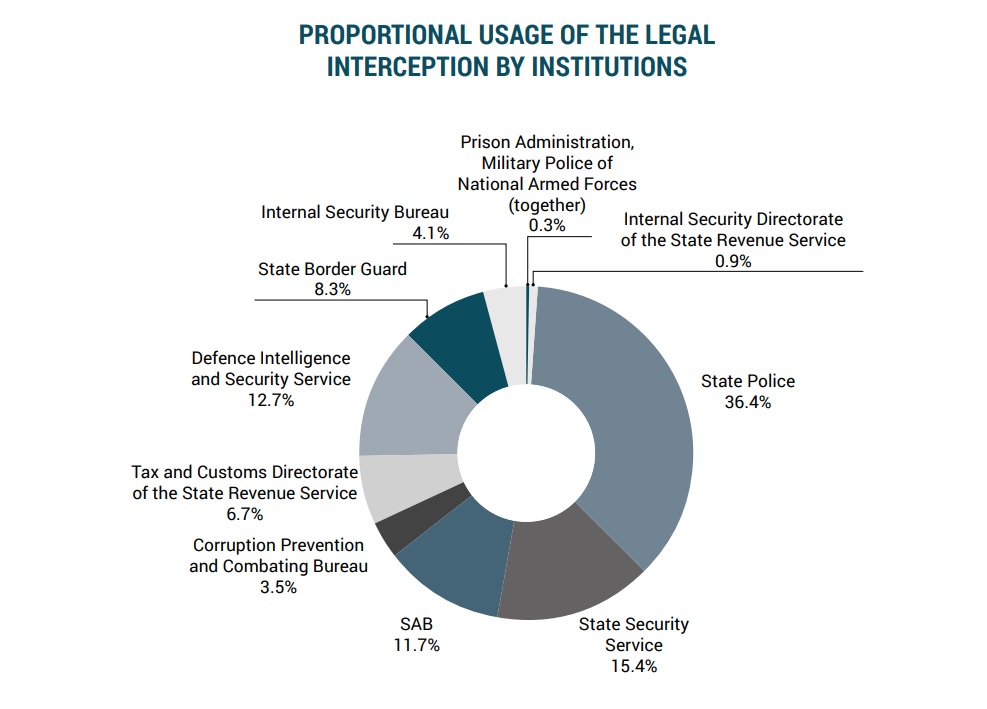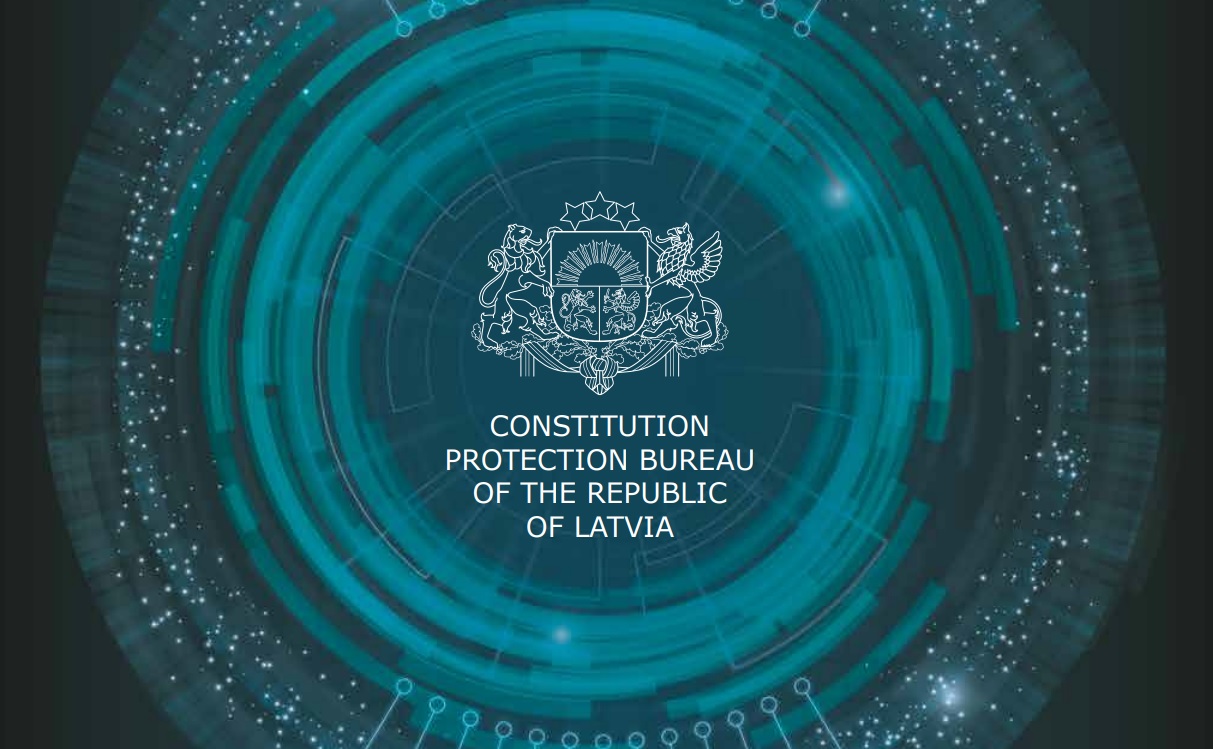"Russian intelligence and security services continue aggressive activities against Western countries, NATO and EU members, including Latvia. Several Russian institutions and special services are implementing discreditation measures of Latvia, using a wide range of methods and increasingly using technologies. Russian special services have also set up units for carrying out aggressive operations – sabotage and assassinations – abroad," the annual report concludes, unsurprisingly.
It states that in 2021, work against Latvia was continued by several special services of non-NATO and non-EU countries, against which the SAB conducted counterintelligence work. The threat they pose is rated "moderate to significant", depending on the particular policy of the country of origin.
"In 2021, Russian special services in Latvia continued to work under diplomatic cover, using both contact persons and open sources to obtain intelligence," the report says.
However, Russia's invasion of Ukraine on February 24 marks a watershed for European security architecture.
“While Western societies strive to influence the future, Russia is trying to go back in time. As a result of the policies pursued by Vladimir Putin’s regime, today’s Russia is more and more reminiscent of its predecessor, the Soviet Union, which, despite some shortcomings, is seen by Russia’s current political elite as an ideal of consolidation of power, public control, and geopolitical position. This position determines Russia’s confrontation with the West, using the means at Russia’s disposal where security and intelligence services play a key role,” the director of SAB, Egils Zviedris, said. As previously reported by LSM, he was only recently appointed to the position.
In his introduction to the report he adds:
"One of my hobbies is ice hockey. Interestingly enough, it has much in common with the work of state security agencies. The right choice of strategy and tactics, the ability to analyse the opponent, react and make (sometimes risky) decisions in a rapidly changing situation, the rotation and cooperation of partners as well as team spirit are all among factors that determine the SAB’s interests and activities in the Latvian security domain."
The report emphasizes the importance of strengthening cybersecurity, both at institutional and national level and in the private sector.
To mark publication of the report, SAB also opened its own official Twitter account for the first time.
Tagad arī jūs mums oficiāli varat sekot.
— Satversmes aizsardzības birojs (@SAB_LV) March 21, 2022
The Constitution Protection Bureau is one of three state security services, the other being the State Security Service (VDD) and the Defense Intelligence and Security Service (MIDD). The main tasks of SAB include intelligence, counter-intelligence and protection of official secrets. SAB also ensures protection of NATO and EU classified information in public institutions engaged in work with such information.
Specifics are not thick on the ground in the report, but the final pages do produce a few interesting statistics with regard to security clearance and wire taps.
Vetting for access to national classified information is carried out by all three state security agencies. Security clearances for access to SEVIŠĶI SLEPENI (Latvian national TOP SECRET) information are issued only by SAB, based on the vetting carried out by all three state security agencies.
In 2021, SAB issued 957 security clearances for the access to national classified information, including 257 security clearances for access to SEVIŠĶI SLEPENI information. In 2021, SAB denied access to national classified information in five cases.
Security clearances for access to NATO and EU classified information can only be issued to people who have already been granted access to national classified information. NATO and EU clearances are issued only by SAB. In 2021, SAB issued 1,548 security clearances for access to NATO classified information and 1,500 security clearances for access to EU classified information. In 2021, SAB denied access to NATO and EU classified information in just two cases. In 30 cases SAB issued clearances for access to NATO and EU classified information for a reduced period of validity.
It also identified "particularly high-risk criteria" for people who were vetted for access to both national and NATO and EU classified information in 2021 as: gambling, excessive debts (including the so-called quick loans) and/or unclear financial transactions, regular contacts and/or trips to Russia, Belarus, CIS countries, China as well as provision of false information or concealment of information during the vetting process.
On wire taps, no figures were given as to how many were carried out, but a graphic does provide a proportional representation of which agencies were given the authority to listen in. The full text of the report is available at: Annual reports.





























